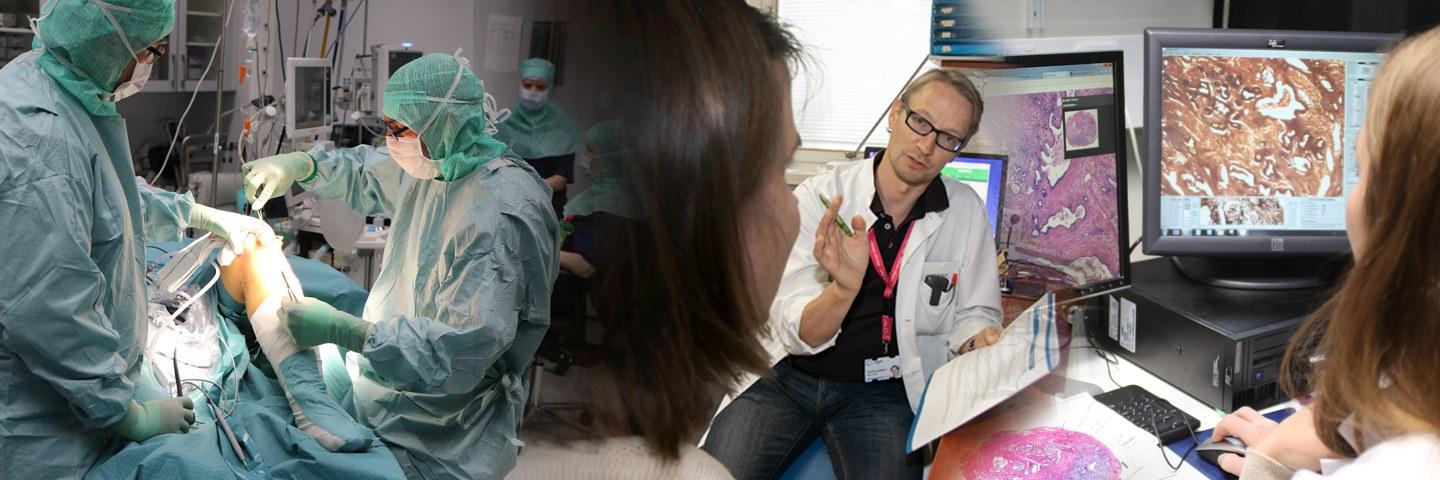The Molecular Biology of Prostate Cancer Group (MBPCG) studies somatic genetic and epigenetic alterations in prostate cancer with emphasis on alterations associated with disease progression. Finding the common genetic alterations is an important step in the development of better diagnostics and therapeutics. Especially, MBPCG is exploring strategies to therapeutically interfere with androgen signaling.
Research focus and goals
The goal of the research group is to identify recurrent genetic and epigenetic alterations in prostate cancer using modern genomic tools, such as next generation sequencing. Special emphasis is currently placed on non-coding RNAs (ncRNA).
In addition, we have a strong interest towards androgen receptor (AR) gene, amplification of which was first described by the group. We study mechanistic consequences of the overexpression of AR using models we have established, as well as clinical samples of castration-resistant disease. We also identify and characterize downstream genes of AR signaling pathway, to screen for candidate drug targets.
We work in brand new laboratories in the Arvo building in the Tampere University - Kauppi campus. We belong to Prostate Cancer Research Center (PCRC), which integrates multidisciplinary research on prostate cancer in the Tampere University and the Pirkanmaa Hospital District, the second biggest Hospital District in Finland.
We have a unique collection of population-based clinical materials and models with complementary expertise from molecular mechanisms to clinical practice. This provides an exceptionally strong basis to find answers to the most important questions in treatment of prostate cancer: the etiology of the disease, identification of clinically relevant disease, personalized cancer therapy and novel treatment modalities to combat the disease.
